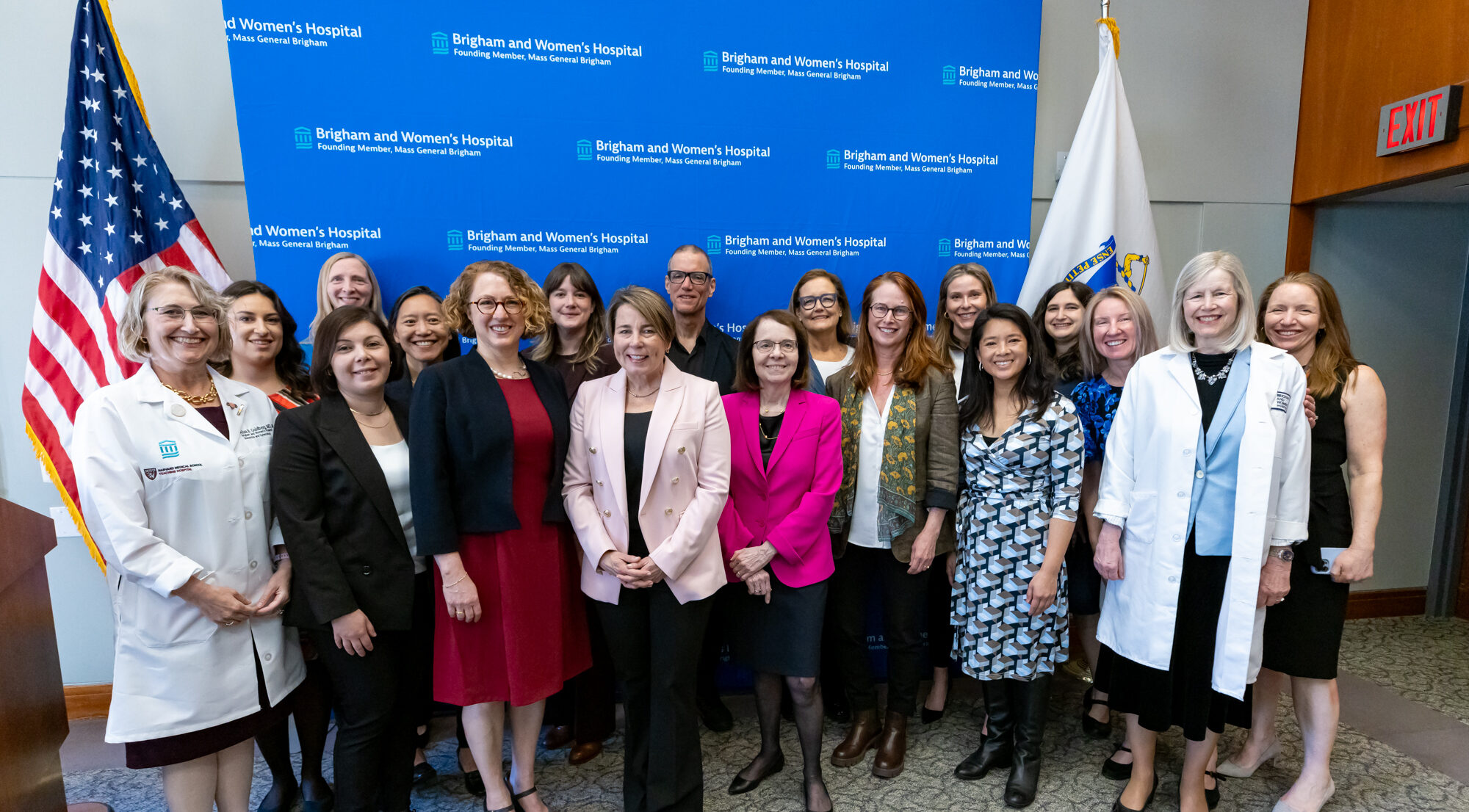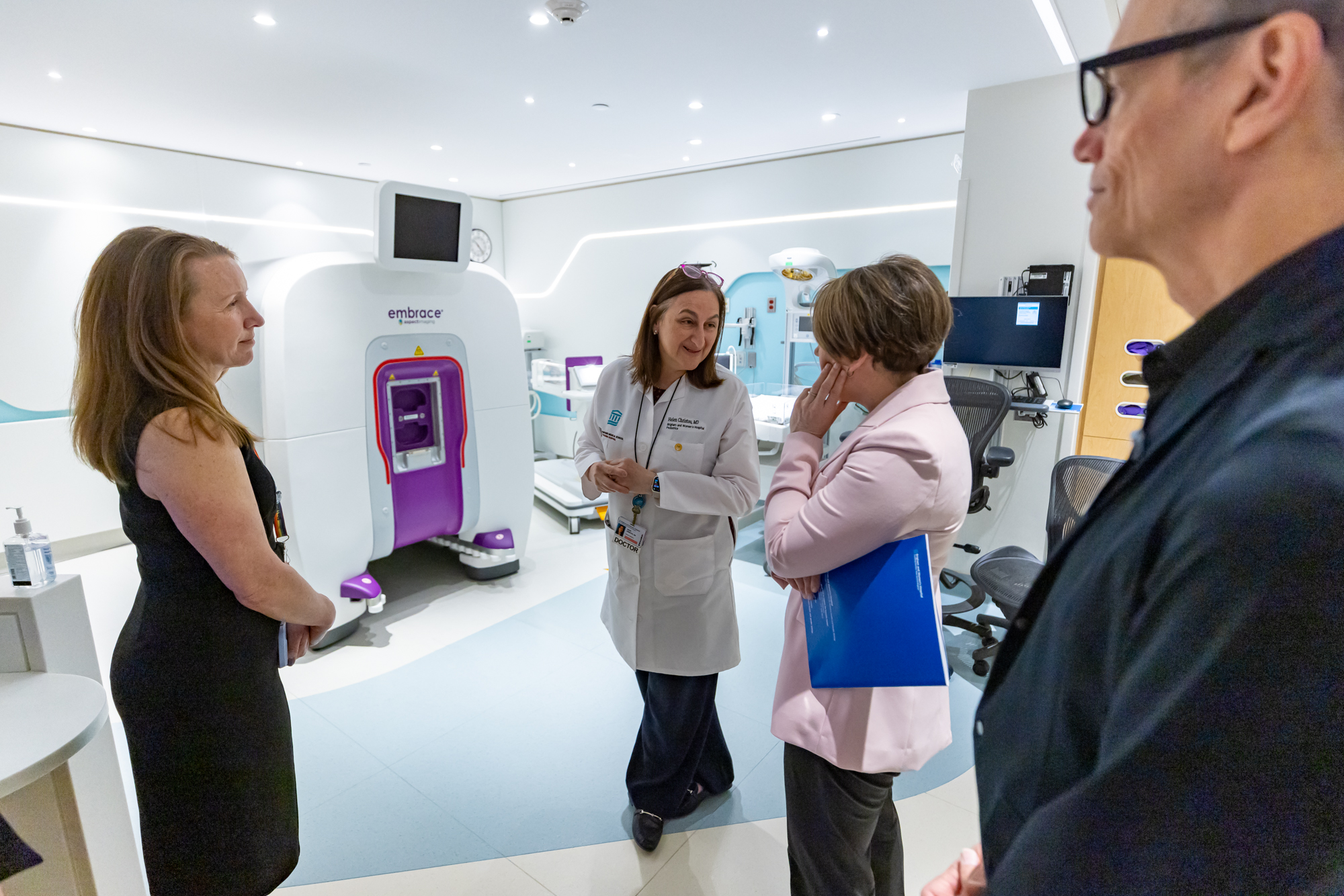
Women’s Health Initiative
The Current State: From high blood pressure, to depression, to autoimmune conditions, women are suffering at higher rates from many illnesses and diseases. Furthermore, exclusion of women from clinical trials and a lack of organized capital have hampered our understanding of any sex-based variation in diseases that present across genders [1,2].
The Challenge: This has resulted in a general underrepresentation and lack of focus on women’s health. Not understanding and studying these nuances impacts not only patients, but also employers and the healthcare system.
The application period will run from Aug. 5 – Nov. 21, 2025 at 1 p.m. EST.
Funding Inequities in Women's Health Research
Funding for conditions that predominantly affect women is insufficient. However, increasing investment could lead to significant benefits. Use the buttons below to explore the data. For the best experience, we recommend viewing this on larger screens, such as desktops.
50-75%
more likely than men to have an adverse drug reaction across all therapeutic indications [3].
of drugs that have been pulled from the market over safety concerns are due to adverse effects specifically in women.

Working Toward Solutions
While some progress has been made, from increased female participation in clinical trials to women’s health in general being better defined, more work remains [4].
The MLSC aims to support and incentivize translational project teams developing novel solutions in this area of need. The Center’s Women’s Health Initiative strives to turn the tide against the severe lack of organized capital and incentives around a coordinated Women’s Health approach.
With continued strategic investment in this area, Massachusetts is poised to become the leader in the Women’s Health space.
Program Overview
The MLSC Women’s Health Initiative is a bold funding program launched in 2019 designed to close critical gaps in scientific understanding and clinical care for the most pressing and under-researched conditions that affect women solely, disproportionately, or differently. Despite their impact on millions of lives, many of these conditions remain underfunded and poorly understood. This initiative seeks to change that.
Through a rotating focus on specific disease areas, the initiative ensures that a broad spectrum of women’s health topics are addressed over time. For the current cycle, the spotlight is on Pregnancy-Induced Hypertension and Perimenopause/Menopause—two prevalent but neglected areas in biomedical research.
At the heart of the program is a pillar-based research model designed to foster innovation through collaboration. Each disease area is explored across four integrated pillars ensuring a comprehensive, translational approach:

AI and Data Science
Harnessing the power of artificial intelligence, predictive modeling, and big data to identify patterns, improve diagnosis, and uncover new research questions.

Disease Biology
Investigating the fundamental mechanisms of disease, including hormonal, genetic, and molecular drivers, to build a foundation for targeted therapies.

Research and Development
Advancing preclinical and translational research aimed at developing novel diagnostics, interventions, and therapeutic strategies.

Clinical Adoption
Bridging research and practice by identifying pathways to integrate discoveries into clinical settings and improve patient outcomes.
Approximately $3 million in capital funding is available for each disease focus area (up to $6 million in total funding). Awards will support collaborative Massachusetts-based research across these domains.
Application Process
Application Period Begins
Application
Due
External Review Period Begin
Review Period
Ends
Award
Notification
Project
Begins
Disease Focus Areas
Despite their prevalence and profound impact on quality of life, pregnancy-induced hypertension and perimenopause/menopause remain vastly under-researched and poorly understood. This round’s disease focus areas aim to reverse that trend by investing in targeted science, coordinated strategy, and sustained collaboration. Bringing together these four pillars will create meaningful steps forward in these target fields.
Pregnancy-Induced Hypertension
Including conditions such as gestational hypertension, preeclampsia, and postpartum preeclampsia, this area seeks to uncover the causes, predictive markers, and optimal interventions for hypertension during pregnancy—conditions that carry serious risks for both parent and child.
Perimenopause & Menopause
This research track focuses on the biological transition women experience in midlife, including its impact on cardiovascular, cognitive, and metabolic health—an area historically underfunded and underserved in biomedical research.
Collaborative Team Model
Applicants will join one of the four pillar-based research teams within their disease focus area. These interdisciplinary teams will work in a coordinated fashion to accelerate understanding, innovation, and implementation—ensuring that progress in one area informs and amplifies others. Although grants are awarded directly to institutions, funded projects are not isolated efforts—they are part of a coordinated ecosystem.
To promote synergy and maximize scientific return, projects within each pillar will actively engage through structured collaboration. This includes:
- Monthly pillar-wide forums led by pillar leads to discuss progress, challenges, and opportunities
- Bi-annual “work-in-progress” meetings for Principal Investigators (PIs) to discuss project milestones and establish structured check-ins with the MLSC Women’s Health Initiative panel of industry sponsors and clinical experts
- Periodic events hosted by industry sponsors to promote research across pillars
This structure ensures that progress in one area informs and amplifies efforts across the entire research landscape—from lab bench to clinic. By breaking down silos and uniting multidisciplinary teams, the MLSC Women’s Health Initiative aims to deliver meaningful and lasting advances in women’s health.
Join the MLSC’s Women’s Health Initiative WhatsApp online community. To request access to join and be part of a growing network advancing Women’s Health in Massachusetts, please complete this request form.
The MLSC is hosting an online community to facilitate collaboration relevant to the Women’s Health Initiative. Joining the online community is voluntary and will not impact eligibility or participation in any MLSC funding opportunities. The MLSC will moderate the group chat with respect to invitations to join and maintaining a respectful community. Please do not share confidential, proprietary, or legally protected information in the online community. The WhatsApp group is not an official channel for conducting MLSC business. Additional information will be provided on the WhatsApp Group home page.
Upcoming Info Sessions
Upcoming Teaming Meetings
The MLSC will host virtual Teaming Meetings that aim to connect researchers, clinicians, and public health leaders from Massachusetts-based not-for-profit research institutions. These events are geared towards the creation of collaborative teams developing innovative approaches to address this round’s disease focus areas across four key pillars. Participants will also learn about the Women’s Health Initiative and upcoming funding opportunities.
Become a Sponsor
Eligibility and Requirements
Eligible applicants must meet the following criteria:
For this solicitation, the MLSC is particularly interested in supporting the following applications from applicants that meet these eligibility parameters:
- Full or part time employee at a not-for-profit Massachusetts-based research institution.
- Researchers must be proposing as Principal Investigators a project that is focused on increasing our understanding of sex and gender differences in biology or developing solutions for diseases or conditions that affect women solely, disproportionately, or differently.
- The project must have a human health focus in biotechnology, pharmaceuticals, medical devices, medical diagnostics or imaging, bioinformatics, digital health, genomics, nanotechnology, drug delivery, proteomics, regenerative medicine, etc.
- Funding must be used to support an experiment or experiments that increase(s) the translational opportunity with a defined goal such as filing patents, securing a sponsored research agreement, attracting other industry support, etc.
- The Applicant and Grantee institution must be in compliance with all other Center agreements, if any.


Program Resources
Upcoming Team Meetings
Impact on the Ecosystem
The MLSC has deployed more than $19 million across 60 projects in collaboration with 15 companies, fostering advancements in translational research. Together, we can reshape the future of women’s health.
Learn more about past awardees of programs under the MLSC Women’s Health Initiative here: First Look, Women’s Health Innovation, Women’s health Collaboration.
The MLSC has deployed more than $19 million across 60 projects in collaboration with 15 companies, fostering advancements in translational research.
invested by the MLSC to support


in follow-on funding received

“Innovation is Massachusetts’ calling card now and into the future. The Mass Leads Act doubles down on our leadership opportunities in areas like women’s health to advance not only our life sciences sector, but also our health care system and broader economy.”
– Lieutenant Governor Kim Driscoll

“This funding will allow for the establishment of a state-of-the art center to study lactation science. The Lactation Lab will encompass both a basic science laboratory, with protocols optimized for breastmilk assays, and a clinical research space designed for the needs of breastfeeding women and their infants.”
– Sarbattama Sen, MD, Vice Chair of Pediatric Research, Women and Infants Hospital of Rhode Island and Former Attending Neonatologist, Brigham and Women’s Hospital
“Massachusetts has already established the infrastructure, supported by the MLSC, to leverage new investments in women’s health to maximize the impact. The MLSC serves as an example of the impact that investment in women’s health can provide.”
– Jamie Maguire, Professor at Tufts University School of Medicine
References:
[1] Estimates of Funding for Various Research, Condition, and Disease Categories. NIH RePORT. 2022. https://report.nih.gov/funding/categorical-spending#/
[2] Mirin, A. Gender Disparity in the Funding of Diseases by the U.S. National Institutes of Health. Journal of Women’s Health 2021 30:7, 956-963
[3] Tharpe, N. Adverse drug reactions in women’s health care. J Midwifery Womens Health. 2011 56(3):205-13. PMID: 21535369.
[4] Vasquez-Avila, K. Addressing the critical role of gender identity and sex in the planning, analysis, and conduct of clinical trials. Princ Pract Clin Res. 2021;7(2):59-62. PMID: 34532571.
Connect with us to learn more
Other Programs











